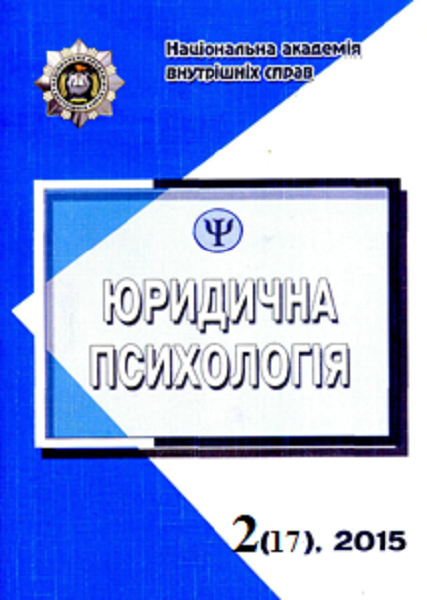Judicial Psychological Expertise of Juveniles in Criminal Proceedings: a Theoretical Analysis
Keywords:
child, juvenile law, forensic psychological examination, criminal punishment, responsibility, the expert-psychologist
Abstract
The species, the grounds and the competence of forensic judicial psychological expertise juvenile are studied in this article. It is established that the objects of judicial psychological expertise of juveniles are psychological manifestations. Such expertise has the following purposes: 1) define stable psychological characteristics, features and dynamic states of mind, the type and depth of emotional reactions; 2) determine the impact of the identified characteristics of personality and mental state of the juvenile features to its ability to reflect reality and adjust the behavior in the crime situation; 3) disclose the nature and type of boundary mental abnormalities, characteristics and extent of their behavioral expression. Therefore, the expert psychologists can determine the influence of the psychological characteristics of a juveniles their behavior at the time of the crime. If the court finds such features limiting the ability of the minor to fully understand the nature of his actions and control them, it should be regarded as the dimenisheed sanity.Downloads
Download data is not yet available.
Abstract views: 955 PDF Downloads: 408
Issue
Section
Psychological issues of work with delinquent persons
- Authors reserve the right to authorship of their own work and transfer to the magazine the right of the first publication of this work under the terms of the Creative Commons Attribution License, which allows other persons to freely distribute published work with mandatory reference to authors of the original work and the first publication of an article in this magazine.
- Authors have the right to enter into separate additional agreements on non-exclusive dissemination of the work in the form in which it was published in the journal (for example, to post an article in the institution's repository or to publish as part of a monograph), provided that the link to the first publication of the work in this journal is maintained.
- The journal's policy allows and encourages the posting of articles by authors on the Internet (for example, in electronic storehouses of institutions or on personal websites), both before the submission of this manuscript to the editorial office and during its editorial processing, as this contributes to the creation of a productive scientific discussion and positively affects the efficiency and dynamics of citing the published work.




